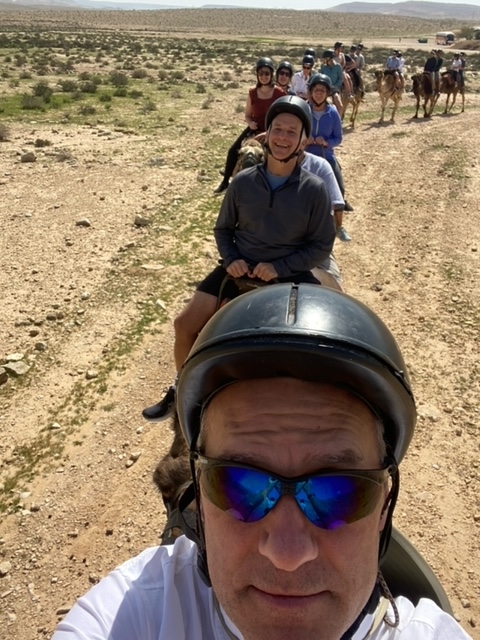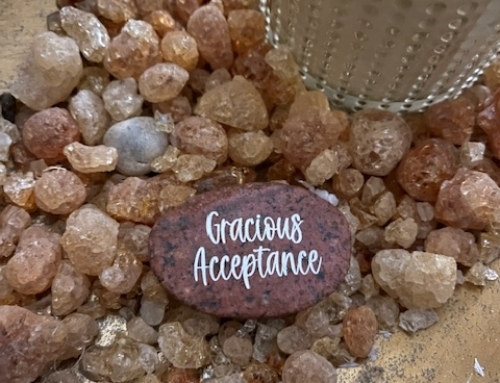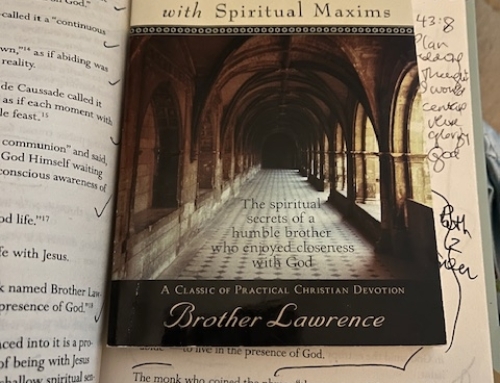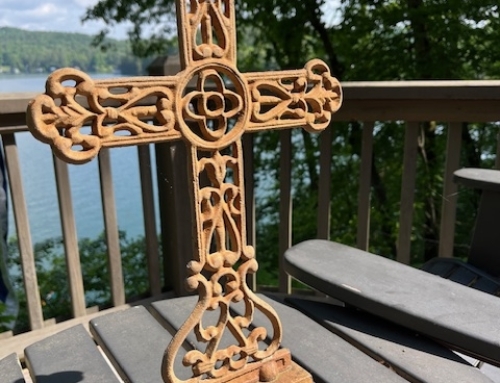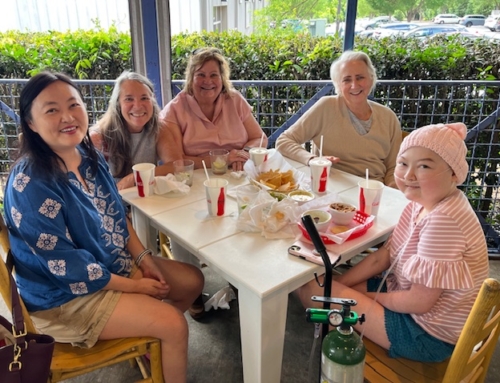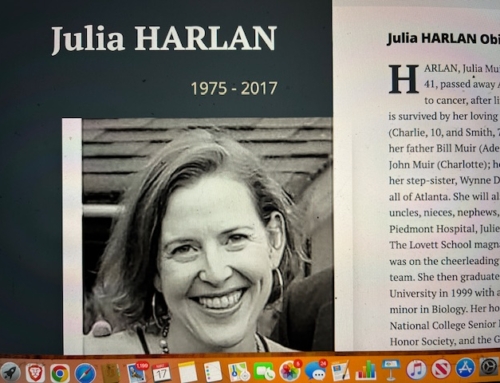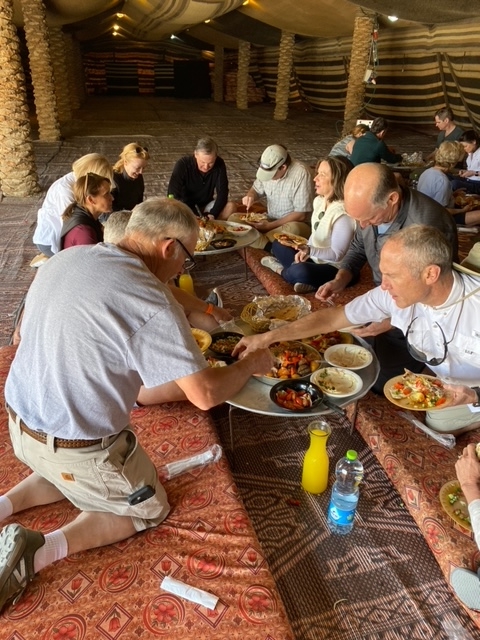
Good morning…
Yesterday’s adventure was meaningful and fun. The twenty-four of us enjoyed the beauty of a Negev Desert hike from the base, past an unexpected waterfall and up to the upper rim of a the stunning canyon. We rode camels (hilarious) and ate an amazing abundant lunch prepared by the kindhearted bedouins (a word which means “desert dwellers”). As we drove further down the windy road into the Judean Desert, we descended 1300 feet below seas level to float together in the Dead Sea (hilarious again) and to enjoy the hot tubs where many come from all over to receive the health benefits from the concentrated minerals in these waters. We looked over this body of miracle water to the see the mountains of Moab in the country Jordan.
Bonding with our group has been spectacular, which fits right in with Steve’s teaching for today.
******
Day 2 – Sunday March 6 – Notes from Rev. Steve Allen
Masada- Exodus 1
Qumran and the Essenes- Isaiah 40, Matthew 26, John 13
Ein Gedi – 1 Samuel 24, Psalms 42 and 63
Beit Shan -1 Samuel 31:8-13
The Hebrew word of the day is Havurah. It means fellowship or community. A small group committed to living life together. A collection of committed people sharing communal experiences.
Think about it. What are our Havurah, the communities of which we are a part? Marriage/Family/School/Work. What’s good about these communities? What’s a challenge about these communities?
The Hebrews left Egypt and began to be a Havurah. To live in community, it’s hard. When you’re hot and hungry, it’s hard. When you’re tired and you don’t share similar views, its’ hard. A community makes requirements of you. Living our faith is not a solitary experience. It is first and foremost a communal one. Today we’re going to look at what it means to live in community, when we bump up against one another, when we’re hot and tired and challenged by one another. Religion is not a solitary experience. It’s meant to be lived out in community.
When a Jewish boy or girl reaches the age of thirteen, they have something called a Bar/Bat Mitzvah. They are celebrated as a son or daughter of the commandment. They officially join the community. They learn a portion of the sacred text. They read it, and they teach a lesson to the community. They become a member of this longstanding community of faith. The young person becomes eligible to participate in all areas of community life, the blessings and the challenges.
Today we will go up and learn about Masada. We will discover the power of what it meant to be a part of a community of God-followers. What did the early followers do and why did they do it? And then at Qumran and Ein Gedi, we’ll hear stories of people who lived out their commitment to being in community and what it meant for them to be a Havurah.
I want us to consider this because we live in a time when community seems fractured. Too often we demonize the “other,” and we don’t play well with our neighbors. As we go through our day, what might we learn from the first God-followers about the value of belonging to a faith community, the blessings and the challenges? In isolation, we are unable to become our best self. Within the friction and the fruitfulness of committed community, we are shaped into the unique individuals God originally designed us to be.
******
We should think about each other to see how we can encourage each other to show love and do good works. We must not quit meeting together, as some are doing. No, we need to keep on encouraging each other. This becomes more and more important as you see the Day getting closer (Hebrews 10:24-25, ERV).
…Sue…
P.S. With our internet access being spotty, please know that if our blog posts turn up an “error, unable to open page” try again at another time. If you missed yesterday’s post, touch on “preview” on the page above to access our morning message.
